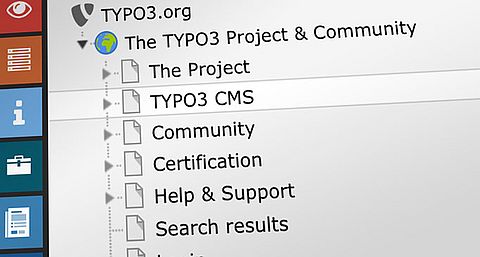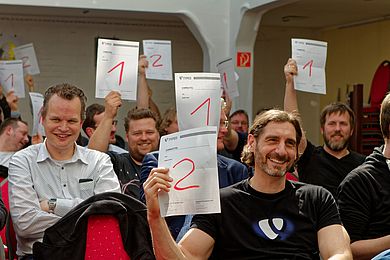Work and Interpersonal Relationships
Why should the TYPO3 Association be interested in Trust? Work is rarely a strictly individual affair. We work for someone and, quite often, we work with others. Work thus brings together different stakeholders, with common interests and, at least in part, different interests; and it requires the articulation of different skills and points of view on the object or service to be produced. It also means, quite often, finding intermediaries to help solve a problem, manage an unforeseen situation or improve an existing one. In short, work is essentially relational.
The TYPO3 Association organization is also a specific case: it's a global organization structured into teams made up of individuals from different countries, cultures and time zones. We work together all year long, but sometimes we don't have the opportunity to meet a colleague in real life more than once a year.
Defining Trust
Trust can be defined as a feeling of serenity that arises from a relationship with a person on whom we rely in a given situation, in the hope that they will take care of our interests. Even if we don't rely on a person randomly, the perceived qualities of that individual do not guarantee the desired result. Generally speaking, talking about trust only makes sense if there is uncertainty about the future. Trust is proven by facts, based on shared experience. For someone to be judged as trustworthy, colleagues will base their assessment on individual qualities in different categories: benevolence, integrity and skills.
Building a Climate of Trust
When trust is built exclusively on individuals' decisions, it can be a real obstacle in an organization like ours. How can we work effectively on ephemeral projects and depend on another stakeholder without knowing them directly? In this type of organization, building a climate of trust is essential. This does not replace the relational bridges built up between each individual, but it does provide the cement needed to quickly create the best conditions for collaboration.
There are a number of possible measures that can be taken to promote trust in the workplace:
- Adopting organizational policies and strategies
- Promoting mutual awareness between individuals
- Developing skills and knowledge
- Monitoring and analyzing performance
When it comes to monitoring performance, people often take this initiative the wrong way and translate it into a lack of trust. It is very important to see performance monitoring and the verification of expected results as a support for individuals, and not as a source of pressure. Considering that to make a mistake is human and granting the right to do so is the first step towards building a healthy relationship of trust. When people are afraid of making mistakes, they unfortunately tend to hide the situation, and the lack of transparency is a primary cause of an organization's inefficiency. Trust does not exclude monitoring; on the contrary, monitoring enables individuals to rely on fact-based information and to feel secure in an organization that offers transparency.
Introducing the TYPO3 Conflict of Interest Policy
As a member of the TYPO3 Board, I am responsible for maintaining a governance model for official bodies (teams, committees, board, etc.) and documenting a transparent communication model between them. What is expected of me includes documented processes, consensus-driven decisions, professional communication, consequence management, etc. Implementing a policy for managing conflicts of interest is one of the first steps in building healthy and transparent corporate governance. The TYPO3 Conflict of Interest Management Policy aims to ensure that the collective interests of the TYPO3 community prevail over personal interests by exercising our responsibilities and making our decisions impartially, objectively, and independently.
View the TYPO3 Conflict of Interest Management Policy
We still have a lot of work to do, but you can be sure that we are heading in the right direction, and that we are making good progress in finalizing the governance of our organization. Stay tuned!





